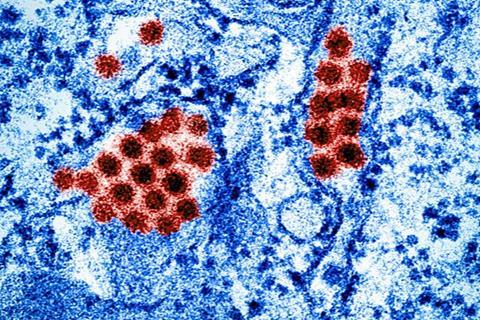On 14 June 2024, the Ministry of Health and Medical Education (MoHME) of Iran reported the first two locally acquired cases of dengue recorded in the country. Local transmission of dengue within the community was confirmed in Bandar-Lengheh, Hormozgan Province, southern Iran.

Two cases of dengue, without any history of travel outside Iran, were confirmed through Polymerase Chain Reaction (PCR) testing conducted by the Arbovirus laboratories of the Pasteur Institute in Bandar Abbas.
By 17 July 2024, a total of 12 autochthonous cases of dengue have been documented in Iran, all of which were reported in Bandar-Lengheh, Hormozgan Province.
Surge in imported cases
Iran had been reporting an average of 20 imported dengue cases annually between 2017 and 2023. However, there was a significant increase in imported dengue cases in 2024, with 137 reported between 15 May and 10 July.
This represents the first report of autochthonous dengue cases in Iran. The confirmation of local dengue virus transmission in 2024 is therefore an unusual although expected event due to the presence of the vector in the country and movement of people from endemic areas to Iran.
Based on entomological surveillance, to date, Aedes aegypti and some Aedes albopictus mosquitoes are established in the provinces of Sistan and Balouchistan, Hormozgan, Bushehr, Khuzastan, and Gilan.
Dengue is a mosquito-borne viral disease caused by the dengue virus, with the potential to cause a serious public health impact. The primary vectors that transmit the disease are mosquitos of the Aedes genus, primarily Aedes aegypti and, to a lesser extent, Aedes albopictus.
Hospital readiness
Iran’s MoHME has enacted measures to strengthen hospital readiness. The World Health Organization (WHO) is supporting the MoHME to enhance surveillance, distributing medical and rapid diagnostic supplies, providing training, and organizing risk communication and community engagement (RCCE) activities.
On 16 May 2024, WHO reassessed the global risk of dengue as high, reiterating that dengue remains a global public health threat. The risk for Iran is also high due to the presence of the vector in the country, favourable climate conditions for the vector and the movement of people from countries with ongoing dengue outbreaks and endemic areas to Iran.
In the WHO Eastern Mediterranean Region, dengue outbreaks continue to be reported in both fragile, conflict-affected, and/or vulnerable countries in the region that have weakened healthcare systems as well as countries with stronger healthcare systems that have been affected by unusual rains due to climate change. Ae. aegypti and some Ae. albopictus mosquitoes have been identified in most of the countries in the region.
DON in full: https://www.who.int/emergencies/disease-outbreak-news/item/2024-DON526







No comments yet